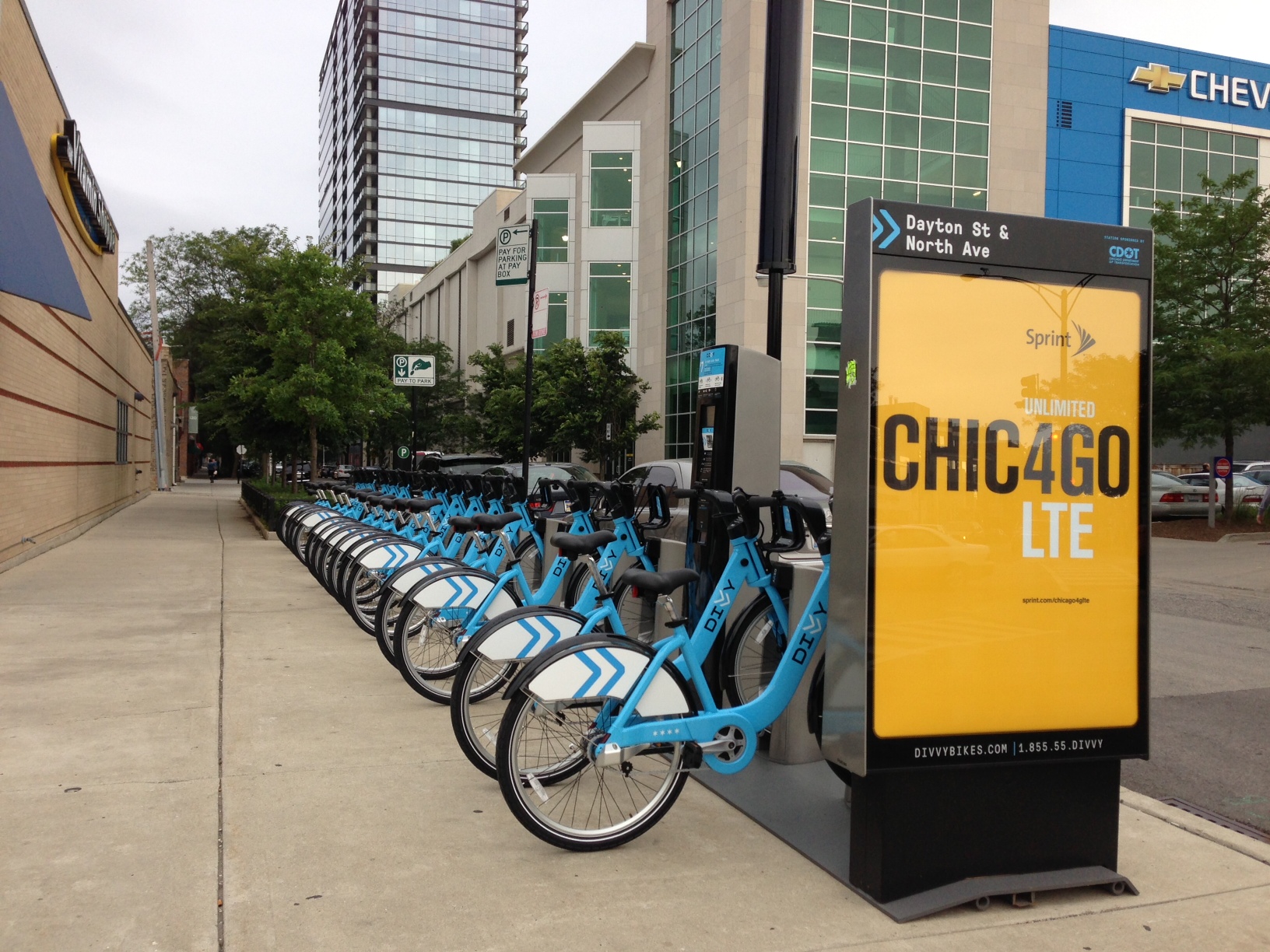
Racks of new sky blue bicycles began appearing on Chicago’s sidewalks last week with the launch of highly anticipated (for some) city bike-sharing program.
Residents and tourists can pick up a big blue bike at one of the city’s first 75 stations. With 750 bikes to start, the program, called “Divvy,” operated by Oregon based Alta Bicycle Share, plans to add 300 more stations and 3000 bikes by next spring.
Daily rental rates begin at $7 and an annual pass can be purchased for $75. Bike sharers will be responsible for their bike during the time they have it, and the replacement cost to the sharer, should they lose it, is $1200. There are no locks for the bikes, as they are to be stored solely in their stations.
Chicago Mag reports “Of the 4,123 bike trips made from Friday morning to Sunday night, 3,225 were made by annual members, and 898 were from customers who purchased 24-Hour Passes.”
With the program raking in $241,875 from annual pass holders, who will not pay another penny to ride all year, and the $6,286 from daily rentals in the first weekend, the city has only about $21.7 million to go.
But who’s counting? The program cost of $22 million, which is “expected to pay for itself,” is mostly funded by a federal TIGER (Transportation Investment Generating Economic Recovery) grant the city received in 2011, allocated for Blue Line restoration and bike sharing, in addition to Tax Increment Financing from Chicago taxpayers.
In addition to the city’s new bike sharing program, part of Mayor Rahm Emanuel’s “Chicago Forward” infrastructure plan (funded by a “public-private” trust) includes the construction of 650 miles of protected bike lanes by 2020 at a cost of $91 million for the estimated one percent of Chicagoans who commute by bicycle.
On Tuesday evening, at the busy intersection of North Avenue and Clybourn in Chicago’s trendy Lincoln Park area, across the street from an Apple Store, one bike was out being shared from that station. (Pictured above)
Meanwhile, last month, Chicago closed 50 public schools it couldn’t afford to keep open.

COMMENTS
Please let us know if you're having issues with commenting.